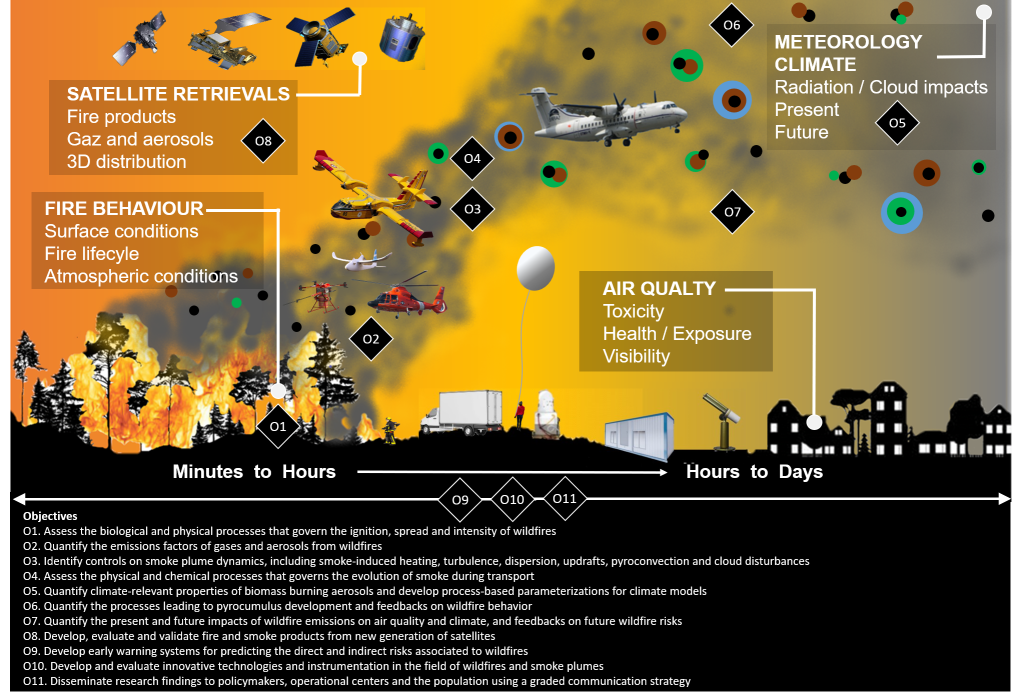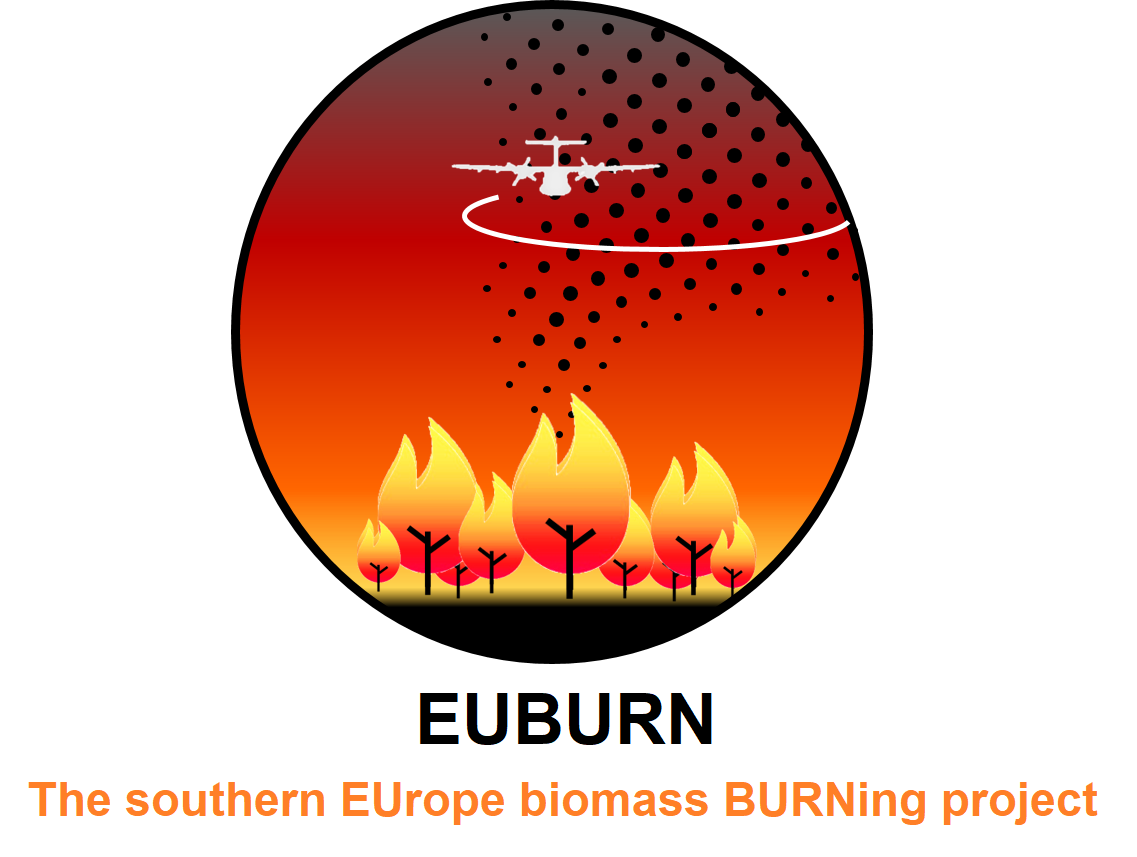
EUBURN aims to:
- Develop risk prevention and adaptation tools for civil protection and environmental management.
- Enhance understanding of wildfire behavior and smoke plume dynamics.
- Improve monitoring and forecasting of wildfires and their emissions.
- Quantify the impacts of wildfire emissions on air quality, public health, meteorology, and climate.
- Strengthen fire suppression and resource allocation strategies.
1. Wildfire behavior
Understanding the physical processes that govern wildfire ignition, spread, and intensity is critical. EUBURN will implement an innovative observation strategy to explore:
- Landscape flammability and fuel moisture dynamics
- Active Fire monitoring, fire propagation monitoringand firebrand ignition
- Meteorological conditions that enhance fire spread and smoke dispersion.
This work will leverage satellite,airborne and drone wildfire monitoring capabilities to generate data to inform the development of advanced fire behavior models.
2. Emissions from Wildfires
Quantifying emissions is fundamental for initializing air quality and climate impacts. EUBURN will provide:
- High-resolution measurements of gases and aerosols
- Chemical and toxicological profiling of smoke constituents
- Smoke plume injection heights to refine vertical transport in models
These data will improve emission inventories used in air quality and climate simulations.
3. Smoke Plume Transport and Evolution
The physical and chemical transformation of plumes is a complex, dynamic process. EUBURN will track the evolution of smoke to better understand:
- Formation and decay of pollutants during transport
- Changes in aerosol toxicity, composition, and optical properties
- Effects of smoke-induced heating on plume dynamics and transport
The findings will enhance model performance and guide satellite retrieval algorithms.
4. Climate-Relevant Aerosol Properties
Aerosols from biomass burning exert varied radiative effects, ranging from cooling to warming. EUBURN will measure optical properties across the UV-to-NIR spectrum to:
- Develop process-based parameterizations for climate models
- Assess aerosol-cloud interactions and radiative forcing
- Support satellite missions tracking smoke and wildfire effects
These efforts will reduce uncertainties in projections of wildfire-climate interactions.
